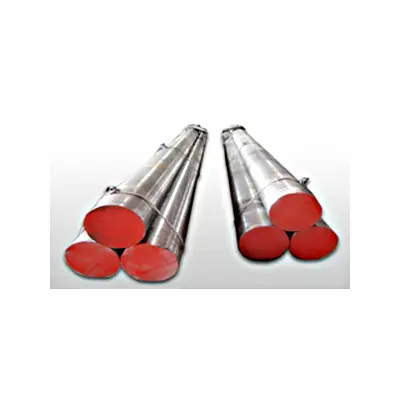We are committed to providing one-stop service for steel pipe products to customers around the world.



.2365 H10 The AISI classifies chromium hot work tool steel as group H steels, ranging from H1 to H19. H10 Chromium hot work tool steel has excellent resistance to softening at high temperatures. This particular grade is resisitant to thermal fatigue cracking and can be cooled in water for servicing.
1.2365 Applications:
Forging dies for steel, mandrels, dies, die holder bolsters and dummy blocks, punches, die inserts, gripper and header dies, hot shears, aluminum die casting dies.
All Grades Comparison:
|
ASTM |
AFNOR |
DIN |
UNI |
JIS |
FED |
|
H10 |
32 DCV 28 |
1.2365 |
T20810 |
SKD7 |
QQ-T-570 |
1.2365 Chemical Composition(%):
|
C |
Si |
Mn |
P |
S |
Cr |
V |
Mo |
|
0.35-0.45 |
0.80-1.25 |
0.20-0.70 |
0.030 max |
0.030 max |
3.00-3.75 |
0.25-0.75 |
2.00-3.00 |
HEAT TREATMENT:
FORGING: Heating for forging must be done slowly and uniformly.
Soak through at 1900-2000°F, and reheat as often as necessary, stopping work
when the temperature drops below 1650°F. After forging
cool slowly in lime, mica, dry ashes or furnace. H10 hot work tool steel should
always be annealed after forging.
ANNEALING: Heat slowly to 1550-1650°F, hold until the entire mass is heated through, and cool slowly in the furnace (40°F per hour) to about 1000°F, after which the cooling rate may be increased. Suitable precautions must be taken to prevent excessive carburization or decarburization.
SRAIN RELIEVING When desirable to relieve the strains of machining, heat slowly to 1050-1250°F, allow to equalize, and then cool in still air.
HARDENING: Warm slightly before
charging into the preheat furnace, which should be operating at about
1400-1500°F.
H10 hot work tool steel is a very deep hardening steel, and although oil
quenching may be used where maximum hardness is required, air hardening is
recommended for most applications. The use of salt bath or controlled
atmosphere furnace is desirable to minimize decarburization, and if not
available, pack hardening spent pitch temperature employed Annealing is usually
in the range of 1800-1900°F.
TEMPERING: Tempering practice may vary with size and application, but is usually performed in the temperature range of maximum secondary hardness or higher double tempering is recommended.
Mechanical Properties:
Modulus of elasticity207 GPa30000 ksi
|
Properties |
Metric |
Imperial |
|
Hardness, Rockwell C (air cooled from 1024°C and double tempered; 649°C temper temperature) |
41 |
41 |
|
Hardness, Rockwell C (air cooled from 1024°C and double tempered;149°C temper temperature) |
58 |
58 |
|
Machinability (1% carbon steel) |
90.0 – 95.0% |
90.0 – 95.0% |
|
Poisson’s ratio |
0.27-0.30 |
0.27-0.30 |
Mill′s test certificate:
EN 10204/3.1 with all relevant data reg. chem. composition, mech. properties and results of testing.